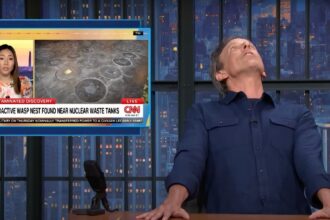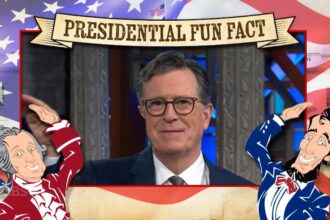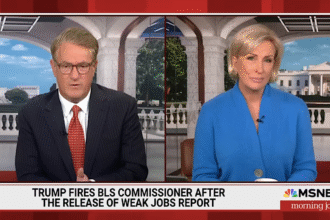Metrograph Pictures Pauses Releases as David Laub Goes to Neon
In a landscape dominated by streaming services and blockbuster franchises, independent film distributors often serve as the heartbeat of cinematic innovation. Among them, Metrograph Pictures has gained a reputation for championing avant-garde cinema, art-house gems, and groundbreaking documentaries. However, recent news has left the indie film community abuzz: David Laub, the co-founder of Metrograph Pictures, is leaving to join Neon, leaving the distribution company in a pause mode regarding new releases. This move has sparked intrigue and raised questions about the future of both Metrograph Pictures and Neon.
The Legacy of Metrograph Pictures
Founded in 2015, Metrograph Pictures emerged from the New York City art-house scene, quickly establishing itself as a curator of distinctive film collections. The company has championed films from obscure directors, unique narratives, and an eclectic mix of genres. Titles like The Killing of Two Lovers, The Other Lshore, and The Black Book are just a few examples of their commitment to showcasing voices from various backgrounds and cultures.
Their success has not only been measured in terms of box office returns but also in critical acclaim. Metrograph Pictures has played a pivotal role in elevating the profiles of many filmmakers, offering them a platform where their visions can be realized and appreciated. With an emphasis on quality over quantity, the company has developed a loyal audience that values their carefully curated selections.
Who is David Laub?
David Laub is a film industry veteran with a keen eye for talent and a passion for storytelling. His career began with a deep-rooted love for independent cinema, leading him to become an influential figure at Metrograph Pictures. During his tenure, Laub has overseen the release of numerous films that have not only entertained but also sparked conversations about pressing societal issues.
His departure from Metrograph marks a significant change in leadership for the company, as his creative vision and experience have undoubtedly shaped its trajectory. Laub’s unique approach to curating films has helped establish what Metrograph Pictures is today—a beacon of innovative independent cinema. Fans and industry insiders alike are left wondering how Laub’s absence will affect the company during this transitional phase.
The Transition to Neon
Neon, the brainchild of Tom Quinn and Tim League, has quickly positioned itself as a formidable player in the independent film landscape since its creation in 2017. Known for its bold marketing strategies and a knack for discovering and promoting unique films, Neon snagged top awards at prestigious festivals and critical acclaim for projects like I, Tonya, Parasite, and The Witch. Laub’s move to Neon signals a strategic migration of talent between two influential entities in the independent film scene.
What makes this transition particularly compelling is the synergy that might unfold between Laub’s artistic vision and Neon’s innovative marketing strategies. The combination of creative curation and robust promotion could yield a new wave of independent films that resonate even more profoundly with audiences.
Why is Metrograph Pressing Pause?
Laub’s exit has led to a pause in new releases from Metrograph Pictures, raising important questions. The company is in a transition period, which could be a double-edged sword. On one hand, it presents an opportunity for internal reevaluation and strategic realignment. On the other, it could also risk losing audience engagement and momentum at a time when independent films are gaining more visibility than ever.
Despite being a time of uncertainty, the decision to pause releases could allow Metrograph to reassess its approach. It’s an opportunity for the team to delve into upcoming projects and strategize how to fill the void left by Laub. Quality and thoughtful programming may be prioritized, ensuring that the films Metrograph selects for distribution continue to resonate with both critics and audiences in the long run.
The Future Outlook
As the dust settles from this transition, the future of both Metrograph Pictures and Neon looks promising yet nuanced. Metrograph will need to lean on its established relationships within the independent film community. Maintaining its commitment to supporting unique voices will be crucial in navigating this delicate period.
Meanwhile, Neon stands to benefit from Laub’s expertise and breadth of knowledge in the field. Having a well-respected figure like Laub can only enhance Neon’s already impressive footprint in the indie distribution realm. Together, they could take the art of independent cinema to new heights, pioneering innovative storytelling and compelling narratives that will capture audience imaginations.
Conclusion
David Laub’s move from Metrograph Pictures to Neon may signify a new chapter in the story of independent cinema. While the pause in releases is a challenge for Metrograph, it also presents an opportunity for growth, reflection, and redefinition. Likewise, Neon’s acquisition of a talented leader like Laub could catalyze the emergence of groundbreaking films that bring diverse stories to the forefront of modern cinema.
For film enthusiasts, this transformative moment in the indie film landscape is one to watch closely. The shifting dynamics between Metrograph Pictures and Neon represent not just personnel changes but also the ongoing evolution of the independent film ecosystem as a whole. In a time where every release is pivotal, the eyes of cinephiles everywhere will be eagerly awaiting what comes next from these two storied organizations.





